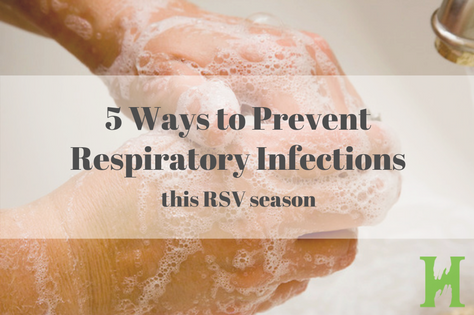Respiratory infections can be quite common, especially during flu seasons or when you come into contact with someone who is sick. These infections typically affect the nose, throat, sinuses, and lungs, causing symptoms such as coughing, sneezing, congestion, and difficulty breathing. To protect yourself and maintain good respiratory health, here are some tips to consider:
1. Wash your hands frequently
One of the simplest yet most effective ways to prevent respiratory infections is to wash your hands regularly. Use soap and warm water, and scrub your hands for at least 20 seconds. Make sure to clean between your fingers and under your nails. If soap and water are unavailable, use hand sanitizer that contains at least 60% alcohol. This practice helps eliminate bacteria and viruses that may be present on your hands.
2. Cover your nose and mouth when coughing or sneezing
When you cough or sneeze, respiratory droplets containing harmful pathogens can be released into the air. To prevent spreading infections, cover your nose and mouth with a tissue or, if unavailable, cough/sneeze into your elbow. This technique helps trap the airborne particles and reduces the risk of transmitting the infection to others. Dispose of used tissues immediately and wash/sanitize your hands afterward.
3. Avoid close contact with sick individuals
If someone near you is sick with a respiratory infection, try to maintain a safe distance to reduce the chances of contracting the illness. Respiratory infections are often spread through droplets produced when an infected person coughs, sneezes, or talks. Keep at least six feet of distance from sick individuals when possible, especially if they are not wearing a mask.
4. Wear a mask in public places
Wearing a mask in public areas can significantly diminish the risk of both contracting and transmitting respiratory infections. Masks act as a barrier, preventing respiratory droplets from being released into the air and decreasing the chances of inhaling infected droplets. Opt for a mask that fits snugly over your nose and mouth, and ensure it covers both properly.
5. Maintain a healthy lifestyle
Building a strong immune system is vital in fighting off infections. Take steps to maintain a healthy lifestyle by eating a well-balanced diet rich in fruits, vegetables, whole grains, and lean proteins. Regular exercise, adequate sleep, and staying hydrated are also beneficial for overall health and can enhance your body’s ability to fight off respiratory infections.
6. Keep your surroundings clean
Cleaning and disinfecting frequently-touched surfaces in your home and workplace is crucial in preventing the spread of respiratory infections. Use a suitable disinfectant on doorknobs, light switches, countertops, and other high-touch areas. Regularly clean and disinfect objects such as cellphones, keyboards, and remote controls, as these can harbor germs and viruses.
7. Avoid touching your face
Our hands often come into contact with numerous surfaces throughout the day, many of which may harbor bacteria and viruses. Touching your face, particularly your eyes, nose, and mouth, can provide an entry point for these pathogens. Make a conscious effort to avoid touching your face, as it can significantly reduce your risk of infection.
8. Stay up to date with vaccinations
Vaccinations are an essential preventive measure against various respiratory infections, such as influenza and pneumonia. Make sure you are up to date on all recommended vaccinations, particularly if you are at higher risk due to age or underlying health conditions. Consult with your healthcare provider to determine the appropriate vaccinations for your individual situation.
Conclusion
Respiratory infections can have a significant impact on your health and well-being, so taking proactive steps to avoid them is crucial. By following these tips, such as washing your hands regularly, covering your mouth when coughing or sneezing, and maintaining a healthy lifestyle, you can reduce the risk of respiratory infections and protect yourself and those around you.

